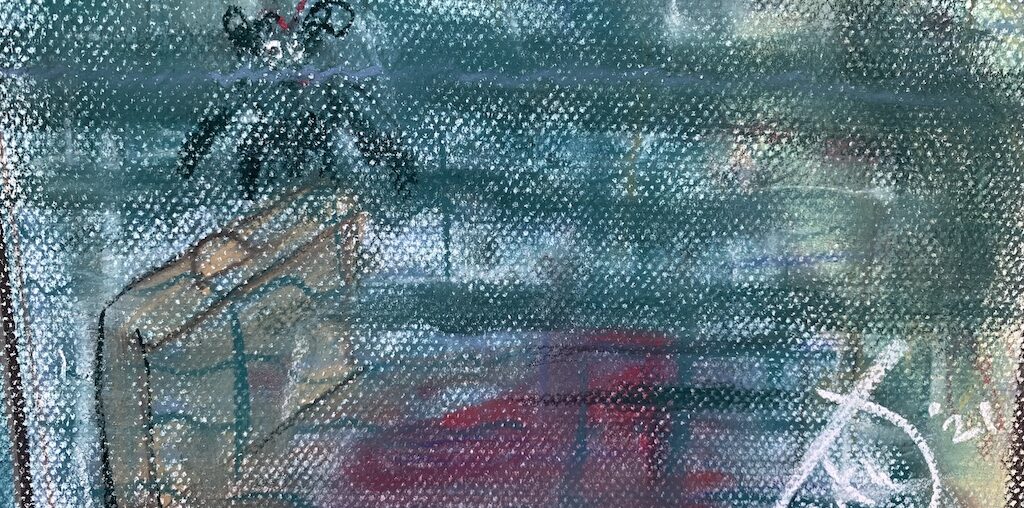Bernard Stilton leads a simple life. He mows middle class lawns, clears middle class gutters, eats at five with his two children, reads them to sleep and watches TV.
His wife is always out. He has stopped asking where, and she has stopped lying. Sometimes she doesn’t come back for a week.
One day Bernard got a call from an old neighbour. Can he do her garden? He hadn’t seen her for ten years, since she’d divorced.
Mrs. Downey answered the door in slippers and dressingown. Her face was puffed, her eyes, bloodshot, and the pungent smell of cat urine followed her.
“Clear the front, do the gutters. Just the front. Don’t go round the back.”
Trees were quietly strangling her house. Oversized camellias pressed against the guttering, a fig had cracked the front porch, a lemon and loquat jammed up against the window.
After four hours of slashing, Stilton climbed onto the roof and worked the gutters.
He worked on his knees, lost in the rhythm of scooping and clearing rotting leaves, till he had reached the back. Against instructions. And there it was.
Hidden among tall weeds and grasses, a mound of earth marked with a wooden cross. And beside it, still in dressingown and slippers, Mrs. Downey, digging and scraping at a small hole with her shovel.
Stilton jumped down. He took the shovel from her hand, hacked through dry soil and twisted roots and dug a hole deep enough to bury a cat.
“Where’s the cat?” he asked.
Mrs. Downey’s lip twitched.
“I’m sorry,” he said. “ It’s a terrible loss. I’ll help. Where is it?”
Mrs. Downey looked toward the back door. On the ground was a green plastic garbage bag.
Bernard picked it up. It was heavy, angular, and poked into his chest.
“What is it?” He dumped it on the ground beside Mrs Downey.
“Don’t open it,” she whispered.
Stilton opened the bag. Photo albums, family photos, hundreds of them. A small boy, a boy with a group of children in a park, a boy on a swing, a boy with a man, dark, robust, his arms around a woman, a young and pretty Mrs. Downey, the boy at the beach, the boy at the dinner table, the boy pushing a stroller, the boy clutching a football, the boy looking up to his father with a toothless grin, a young Mrs. Downey with a newborn, the boy clutching her skirt, the boy in school uniform, awkward, shy.
Stilton looked at Mrs. Downey on her knees at the waiting grave and closed up the bag. He knew he had trespassed sacred ground and stepped away.
When he left, Mrs. Downey was kneeling over the open grave, hugging the garbage bag to her chest, lowering it, as though she would fall in with it, into the grave.
At home, his wife was watching the news, a suitcase at her feet. War in Afghanistan. Flood in Queensland.
An Afghani man mourns his dead son. A Queensland woman cries out over the sweeping waters for her daughter. A cyclone is coming to Queensland.
After the news, his wife will be gone. How long this time? Who with this time?
“Daddy! I’m hungry!” Their daughter runs in.
On the screen, bodies and houses and cars and trees and dogs sweep down Brisbane’s flooding streets in yellow, turgid waters. Raging waters gurgle up the TV screen and threaten to burst through their living room.
“Those poor people,” says his wife as she stands to leave.
But before the waters could crack the glass and sweep them away, he throws her a life jacket. “Wait!” and grabs her arm.
His voice, suddenly cracked, catches hoarse, drowning. “Honey, you don’t need a flood, or a war, to kill your children.

